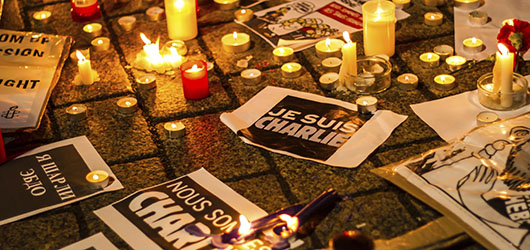
Counter-terrorism measures must account for attackers’ emotions, says new study
Counter-terrorism officials must acknowledge that terrorists are not fully rational if future attacks are to be prevented, say the authors of a study on counter-terrorism modelling published this month.
Terrorists’ decisions about which targets to attack and how to attack them are driven by emotional factors, including anger and fear, which are not well reflected in existing counter-terrorism modelling used to predict suicide bombings and other terrorist actions.
The current trend assumes people who commit these acts are “fully rational” in striving to achieve goals as efficiently and effectively as possible.
In the paper In the Opponent’s Shoes: Increasing the Behavioral Validity of Attackers’ Judgments in Counter-Terrorism Models published in the online edition of Risk Analysis, authors Sumitra Sri Bhashyam (Evidera UK), and Gilberto Montibeller - a Professor of Management Science at Loughborough University, urge counter terrorism modellers to rethink.
Prof. Montibeller, an expert on the prioritisation of emerging threats, explains:
“Officials need to consider how terrorists’ preferences are affected by emotions and visceral factors that influence their decisions about short- and long-term goals.
“They need to challenge the widely held assumption that terrorists are fully rational actors who seek to maximise tangible goals, and instead recognise their rationality is limited and emotional factors could affect their behaviour.
“Existing models are incomplete in their key assumptions that terrorists only seek to maximise economic or damaging impacts, that they have well-established and stable preferences, and that they view the probabilities of achieving success of their actions objectively.
“Models should conform more closely to what actually is known about terrorists’ motivations and judgments.”
According to Sri Bhashyam and Montibeller, there are different types of terrorists who cannot be assumed to operate in a fully rational way.
Although “sympathisers” can be assumed to fit current rational decision making models, such rationality does not hold in many instances for “active” and “suicidal” terrorists.
Active terrorists - including leaders - can be “impulsive, emotionally unstable and are prone to externalise their emotions,” such as anger. Suicidal terrorists, on the other hand, “seek care and guidance from stronger personality figures” and benefit from the attention accompanying martyrdom.
Based on their acute analysis, the authors note that passions and visceral factors influence an agent to behave extremely myopically and to seek immediate rewards, disregarding any detrimental effects.
As such, the authors recommend that counter-terrorism modellers consider terrorists as myopic decision makers and subject to clouded objectives due to irrational visceral factors.
The study is an outcome of Dr Sri Bhashyam’s PhD research, supervised by Professor Montibeller and conducted when both were affiliated with the Decision Sciences Team at the London School of Economics and Political Science (LSE).